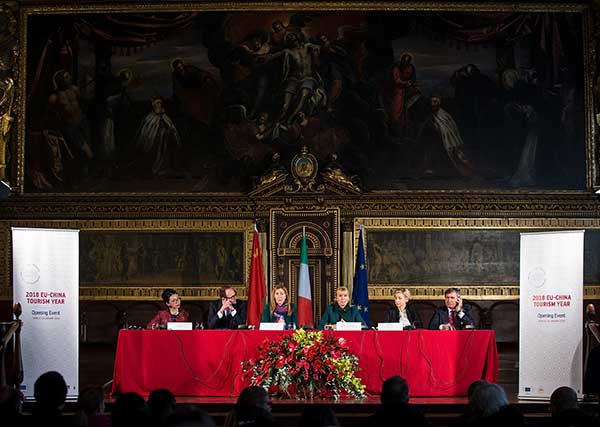EU-China Tourism Year 2018 opens with official ceremony in Venice
The EU-China Tourism Year 2018 (ECTY) was launched last Friday in Venice, Italy, bringing together high level officials and private operators from both sides.

An official ceremony was held at the Doge's Palace to mark the opening of the initiative, which is aimed at strengthening cooperation between the European Union (EU) and China in terms of both tourism flows and investments in the sector.
Europe is now the third largest destination for Chinese citizens traveling abroad, according to Ambassador Zhang Ming, head of the Chinese Mission to the EU, who gave the figures in a recent interview with Xinhua in Brussels that nearly 3.5 million Chinese citizens visited the EU countries in 2016.
Overall, about 122 million Chinese travelled abroad (worldwide) in 2016, spending some $109.8 billion, according to data by the Chinese Tourism Academy.
Meanwhile, over 3.1 million Europeans travelled to China, injecting an estimated $14.17 billion into its economy, according to Ambassador Zhang.
"First of all, this will hopefully be a great opportunity to enhance people-to-people dialogue among Europeans and Chinese," Elzbieta Bienkowska, EU Commissioner for Internal Market, Industry, Entrepreneurship and SMEs, said at the ceremony.
"Yet, it will also be a very concrete manifestation of our cultural and economic diplomacy, because tourism is really a very serious economic sector in Europe," she stressed.
Alongside the celebrations, the first EU-China Tourism business summit took place on Friday with an aim to boost contacts and exchanges among operators from both sides.
Also attached to the ceremony, Italy and China signed a separate protocol to strengthen alternative routes to the traditional tourism destinations in both countries, which included the twinning of their respective UNESCO World Heritage Sites.